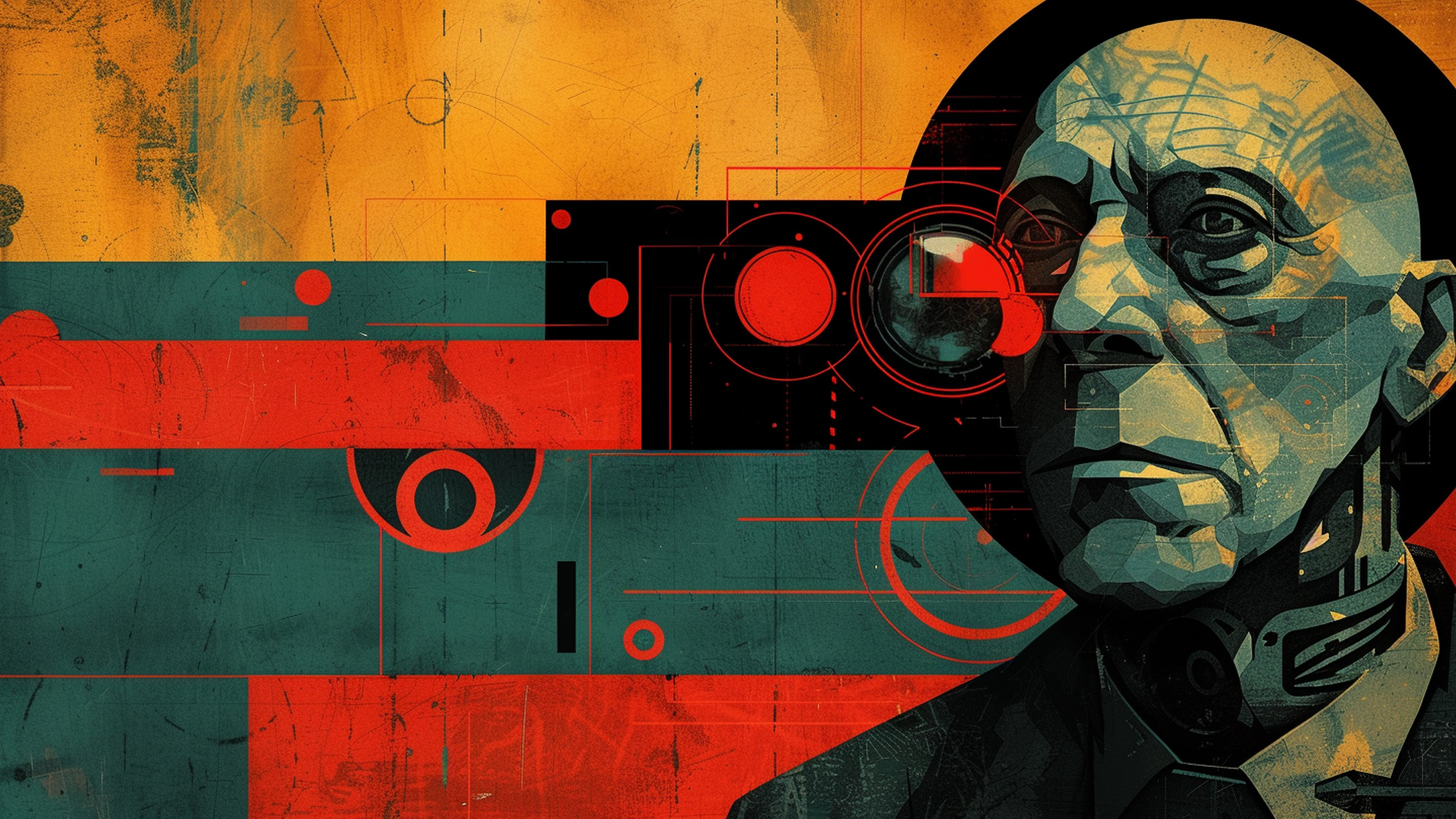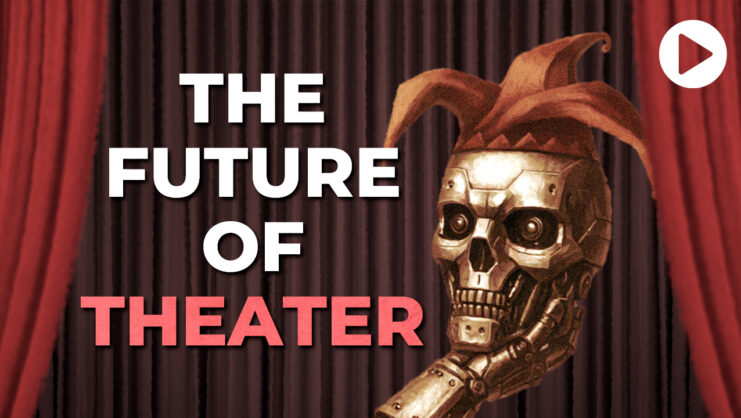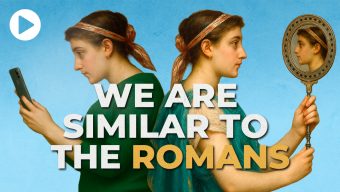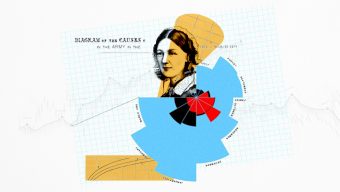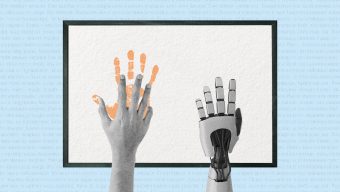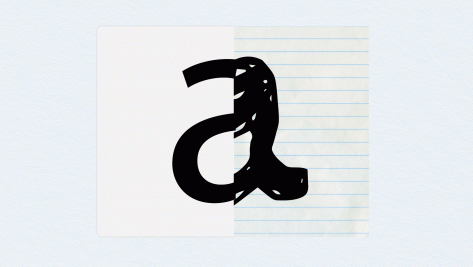Almost a century ago, a man imagined an intricate library made of seemingly infinite hexagonal galleries, filled with millions of books containing every possible combination of letters and punctuation symbols. Many of the books made no sense in any human language, while some contained, hidden among hundreds of pages worth of gibberish, one articulate phrase or sentence. Its inhabitants – who called themselves librarians – spent their entire lives traveling across the galleries and carefully reading through the books, searching for one which would answer all their questions. Statistically speaking, among the countless texts containing random sequences of characters, one such book existed: it was just a matter of being lucky enough to find it.
Along the process, some librarians created their own religious sects, and others learned languages to increase their chances of making sense out of the words on the pages. Many despaired or went mad. There used to be a radical group that destroyed every book that appeared meaningless to them, unaware that their attempts were essentially futile and insignificant (for every destroyed book, the library contained several others that only differed with it in one or a few characters). The man who imagined all this was Jorge Luis Borges (Argentina, 1899-1986). The story, titled “The Library of Babel”, was first published in 1941. The library was, in fact, the universe.
What Borges originally conceived as an allegory of humanity’s daunting pursuit of knowledge is today an eloquent metaphor of the digital world: a vast network of servers, cables, and wireless signals hosting seemingly endless combinations (of ones and zeroes, of coding language, of pixels) that we now call data. As content becomes ever easier to produce, store, and distribute thanks to widespread access to the internet and to smartphones, librarians (now called “users”) must navigate an extremely complex and almost infinite digital landscape plagued with all sorts of information, under the only guidance of invisible algorithms that none of us fully comprehends.
As a result, truth seems as elusive as ever, in part thanks to the recent boom in generative AI technologies, which are now almost universally available to well-intended and bad actors alike. Neologisms such as fake news, bot farms, deepfakes… have entered our everyday language, as misinformation becomes increasingly difficult to spot. Far from igniting a spark of optimism, commentators are raising alarms with rather explicit terminology: Cory Doctorow observes a general dynamic of “enshittification” in online platforms, whereas Ian McCarthy et al. recently coined the term “botshit” to warn against the dangers that so-called AI hallucinations pose if humans accept them as truthful statements when engaging in decision-making processes and research. What would Borges have to say?
Just like in the infinite library imagined almost a century ago, the search for new answers remains a radically human task.
In 1942, the Argentine author wrote another short story, “Funes the Memorious”. In it, a first-person narrator writes about his encounters during the late 19th century with a young man from Uruguay named Ireneo Funes, who develops superhuman perception and memory after a tragic fall from his horse leaves him physically paralyzed. Funes demonstrates a unique capacity to remember absolutely everything that he has ever witnessed with microscopic detail: the creases on the cover of a book he saw once, the shape of the clouds one remote morning (and the feelings which they elicited.) He never needs to write anything, for all that he has ever experienced is always readily available to him.
Unsatisfied with the inaccuracies of human language, he invents his own code to register information in the hyper-detailed way of which only he is capable. Along the process, every possible number gets renamed with a specific word that he associates with it: 7,013 becomes “Máximo Pérez”, whereas he uses “nine” to refer to the number 500. Funes seems poised to answer many of humanity’s great questions of the time, but the result is instead tragic as he becomes increasingly isolated from the others, who cannot speak his language nor see the world the way he does. The narrator further speculates that Funes was, in fact, “not quite capable of thinking” because “thinking consists in forgetting differences, in generalization, abstraction”, precisely the skills of which his supernatural talent had deprived him.
The prodigious Uruguayan may have never existed, but such descriptions of him fit almost perfectly what we now know about Large Language Models: that they are based on highly sophisticated associations of words and numbers (check out Ikhlaq Sidhu’s explanation of the Word2Vec algorithm), and that AI does not really think (at least not the way humans do.) In the story, Funes himself laments that his incredible memory is essentially useless, a “garbage dump”, thus anticipating the metaphors of decay employed by Doctorow and McCarthy. I believe that Borges would have shared their concerns.
One last story. In “The Aleph” (1949), an acquaintance of the narrator hides, in his home’s basement, a small iridescent sphere of two or three centimeters in diameter containing “every corner of the orb seen from every angle”. Such artifact – the Aleph – allows the user to set eyes on any part of the universe, from remote deserts and battlefields to the letters on the pages of a closed book. We are not there (yet?), but it is hard to read a short story like this without thinking about digital mapping technologies, immersive experiences, and three-dimensional reconstructions of lost worlds. The narrator admits the possibility that the Aleph may not contain the world, but a mere reflection – the mirror was one of the Argentine’s favorite metaphors – of it, which would establish an even clearer parallelism with currently-existing technologies. In the story’s ending, the first-person narrator (whose name is Borges) makes the acquaintance believe the Aleph only exists in his disturbed mind, and the building is eventually demolished resulting in the artifact’s destruction. Such plot twist echoes present-day ethical debates in tech – including the surge of new Luddism – with strong force.
Throughout history, literary works have anticipated – implicitly or explicitly, consciously or by serendipity – groundbreaking technological and scientific discoveries that we now take for granted. In so doing, and more importantly, they anticipated the dilemmas these would entail, thus offering imaginative solutions to the readers of the future. Just take Borges’s best friend, Adolfo Bioy Casares, who prefigured the advent of Augmented and Virtual Reality in his novel Morel’s Invention (1940). Or Gabriel García Márquez’s One Hundred Years of Solitude (1967), where the inhabitants of Macondo start forgetting the names of everything that surrounds them in a chapter which can be read today as a parody of the “Google Effect”. A few years ago, Samanta Schweblin published her short-story collection Kentukis (2018), which predicted some of the most prevalent debates of the post-pandemic era regarding remote human interactions and the rise of the Metaverse.
In the case of Borges, recent developments have inevitably altered our contemporary reception of some of his best-known short stories, initially conceived as allegories, fantasy fiction, or philosophical essays. Today, they become a powerful reminder that new tools impacting knowledge production and preservation need to be beneficial for all of humanity, and that it is up to us – as readers, as users, as citizens – to establish best practices and ethical guidelines. Just like in the infinite library imagined almost a century ago, the search for new answers remains a radically human task. We still have not found the book containing everything (in the short story, that inaccessible book is God) but, if a librarian were to ask me, I would suggest they start by looking in one written by Jorge Luis Borges.
© IE Insights.



